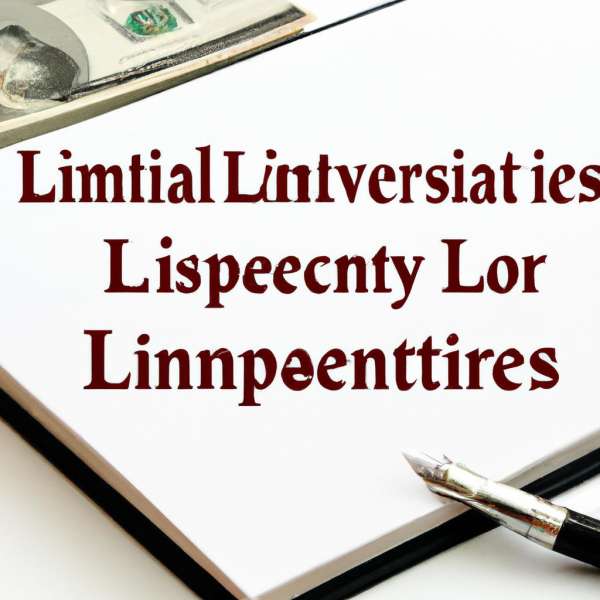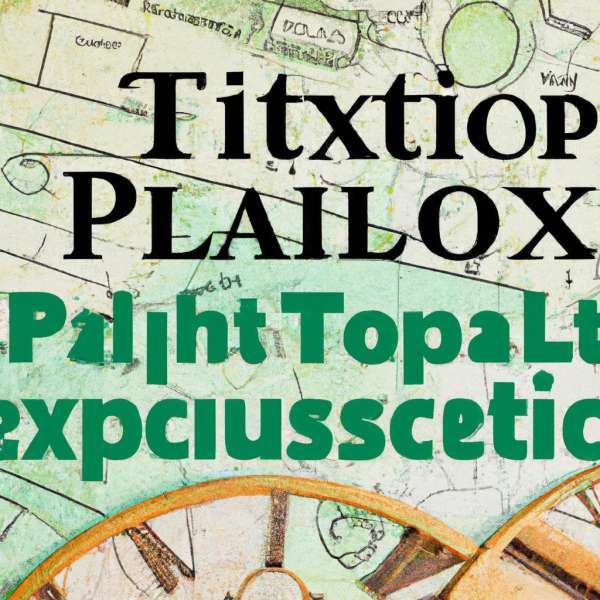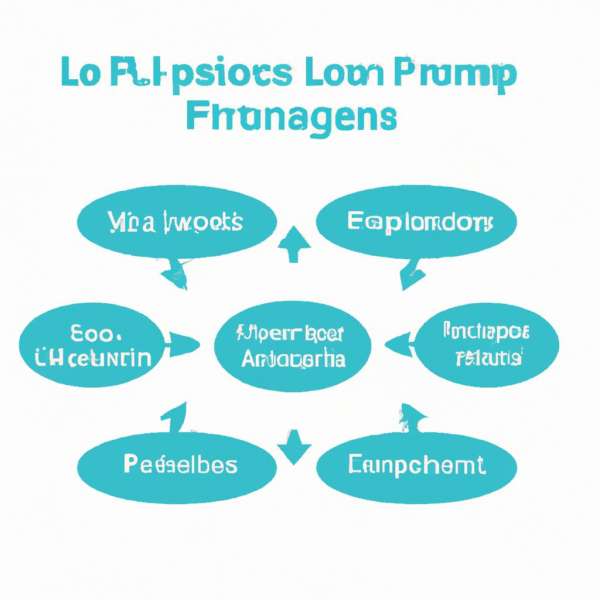In the intricate world of estate planning, the blending of legal structures and personal intentions flows like a symphony, where harmony between asset protection and family legacy is paramount. As we navigate the labyrinth of multi-generational wealth, two notable players take center stage: Family Limited Partnerships (FLPs) and Limited Liability Companies (LLCs). These entities offer not only a shield against potential financial risks but also a sophisticated framework for guiding the future of your estate. In this article, we will explore the fundamental roles FLPs and LLCs can play in helping individuals and families craft a legacy that reflects their values, protects their assets, and ensures a smoother transition of wealth to the next generation. Join us as we unravel the complexities and unveil the advantages of incorporating these valuable tools into your estate planning strategy.
Exploring the Benefits of Family Limited Partnerships in Estate Planning
Family Limited Partnerships (FLPs) present a unique opportunity for estate planning, allowing families to consolidate their assets and maintain control over their wealth while providing significant tax advantages. Engaging in an FLP facilitates a flexible and efficient means of transferring family wealth, protecting it from creditors, and simplifying the management of financial resources among family members. Here are some notable benefits:
- Asset Protection: FLPs serve as a shield against creditors, ensuring that the family’s wealth is safeguarded from potential lawsuits and other liabilities.
- Tax Advantages: By utilizing an FLP, families can reduce their estate tax burden through gifting and valuation discounts, ultimately enhancing the wealth that can be passed down to future generations.
- Family Control: Establishing an FLP allows parents to retain control over the management of assets, guiding how the family wealth is utilized while instilling a sense of responsibility among heirs.
- Succession Planning: An FLP simplifies the transfer of ownership upon the death of a partner, allowing for a seamless transition of assets without the need for probate.
Moreover, an FLP can also help cultivate financial literacy within the family. As younger generations become involved in the partnership, they gain firsthand experience managing investments and understanding the complexities of estate planning. This proactive approach can foster a deeper appreciation for wealth management and the responsibilities that come with it.
Consider the following table that summarizes the core benefits of utilizing a Family Limited Partnership in estate planning:
| Benefit | Description |
|---|---|
| Asset Protection | Safeguards family wealth from creditor claims. |
| Tax Efficiency | Reduces estate taxes through strategic gifting. |
| Control | Maintains parental control over family assets. |
| Education | Promotes financial understanding among heirs. |
the integration of Family Limited Partnerships into estate planning strategies not only consolidates wealth but also empowers families to adapt, manage, and thrive in their financial journeys together.

Understanding the Role of Limited Liability Companies in Asset Protection
Limited Liability Companies (LLCs) serve as a powerful tool in safeguarding assets, offering both flexibility and protection. By design, an LLC creates a separation between the personal assets of its owners and the liabilities incurred by the company itself. This distinction is crucial; should the LLC face legal challenges or debts, the personal wealth of its members remains shielded, minimizing the risk of personal loss.
When integrating LLCs into estate planning, the arrangement possesses several key advantages:
- Asset Division: LLCs allow for the structured division of assets, making it simpler to transfer ownership when needed while retaining control during one’s lifetime.
- Tax Flexibility: Depending on how they are organized, LLCs can opt for different tax treatments, making it easier to maximize financial efficiency in estate planning.
- Enhanced Privacy: In certain jurisdictions, LLCs offer anonymity to their members, shielding personal information from public view.
- Continuity of Management: LLCs can ensure that management transitions smoothly between generations, preserving family legacies and operational stability.
Establishing an LLC also benefits from various state regulations that provide further asset protection advantages. For example, in some states, there are laws that protect certain types of assets held in an LLC from creditors or lawsuits.
| LLC Advantages | Asset Protection Features |
|---|---|
| Separation of Assets | Personal liability protection |
| Flexibility in management | Customizable operating agreements |
| Tax Benefits | Pass-through taxation options |
| Transfer of Ownership | Simplified succession planning |
utilizing LLCs within the framework of estate planning provides a robust approach to protecting one’s assets while ensuring that wealth and management can transition seamlessly across generations. By strategically employing LLCs, individuals can effectively navigate the complexities of asset protection, leading to more favorable outcomes in their estate plans.

Navigating Tax Implications with FLPs and LLCs for Generational Wealth
When leveraging Family Limited Partnerships (FLPs) and Limited Liability Companies (LLCs) as part of your estate planning strategy, understanding the tax implications is crucial for preserving and growing your generational wealth. Both structures offer unique benefits that can provide significant advantages, but they also come with specific tax considerations that deserve careful attention.
One of the primary benefits of FLPs is their ability to facilitate the transfer of wealth while minimizing gift and estate taxes. By placing assets into an FLP, you can gift partnership interests to heirs at a discounted value, effectively reducing the taxable estate. An LLC, on the other hand, can provide a flexible income distribution that allows you to manage the tax burden among family members based on their income levels. Here are some key advantages:
- Reduced Valuation for Gift Taxes: Transferring interests within FLPs can yield substantial discounts, lowering gift and estate tax liabilities.
- Income Splitting: LLCs can allocate profits among members, allowing families to split income to minimize tax impacts, especially in lower tax brackets.
- Asset Protection: Both structures offer liability protection, shielding family assets from creditors while retaining control for the family.
However, both FLPs and LLCs must adhere to IRS regulations to avoid misclassification risks that could lead to adverse tax consequences. Proper documentation and regular compliance are imperative to maintain the tax benefits associated with these entities. The table below outlines essential tax considerations for FLPs and LLCs:
| Entity Type | Tax Benefits | Potential Risks |
|---|---|---|
| FLP |
|
|
| LLC |
|
|
In this intricate landscape of tax implications, engaging with experienced tax professionals and estate planning attorneys can help ensure consistency in monitoring your investment strategies for continual compliance while maximizing the longevity of your family’s wealth. The journey toward generational wealth does not merely end with asset protection but hinges on understanding and navigating the tax environments surrounding these powerful structures.

Strategic Recommendations for Implementing FLPs and LLCs Effectively
Implementing Family Limited Partnerships (FLPs) and Limited Liability Companies (LLCs) may require a tailored approach to ensure their effectiveness in estate planning. Understanding the unique attributes of each entity can guide families in deciding which structure best fits their needs. Consider the following strategic recommendations:
- Define Clear Objectives: Establish the primary goals for utilizing FLPs and LLCs. Common objectives include asset protection, tax efficiency, and facilitating smoother transfer of wealth.
- Engage Professional Advisors: Collaborate with estate planning attorneys, tax professionals, and financial advisors to navigate the complexities of both structures. Their expertise can help in clarifying nuances that impact the structures’ effectiveness.
- Consider the Family Dynamics: Assess familial relationships and involvement. Effective communication with family members about roles within the FLP or LLC can prevent misunderstandings and establish accountability.
- Review and Adjust Regularly: The financial landscape and family circumstances change over time. Regularly reevaluate the structures to ensure they continue to meet the strategic goals set forth at inception.
Another crucial aspect is complying with regulatory requirements. Each structure has distinct operational guidelines that must be adhered to. Below is a simplified overview of the necessary considerations for each entity:
| Entity Type | Key Considerations |
|---|---|
| Family Limited Partnership (FLP) | Decide on the general vs. limited partner structure, ensure proper valuation of contributions, and prepare the partnership agreement with care. |
| Limited Liability Company (LLC) | Select members wisely, craft an operating agreement, and monitor state laws related to LLC formations. |
incorporating a dynamic management structure within these entities can lead to longevity and sustainability. It’s essential to designate clear roles and responsibilities, ensuring a seamless transition in leadership if needed. Future generations should be included in planning discussions, enhancing their understanding and commitment to the family’s estate strategy. By taking these steps, families can position themselves for a successful implementation of FLPs and LLCs that will serve as a solid foundation for their estate planning endeavors.
In Conclusion
the intersection of Family Limited Partnerships (FLPs) and Limited Liability Companies (LLCs) offers a multifaceted approach to estate planning that can empower individuals and families to maximize their legacy while minimizing tax burdens and potential disputes. By utilizing these structures thoughtfully, you can create a framework that not only preserves wealth but also fosters family unity and responsibility. As you navigate the complexities of estate planning, remember that each family’s needs are unique. Consulting with a qualified professional can help tailor these tools to your specific situation, ensuring that your wishes are honored and your loved ones are cared for. Equipped with this knowledge, you can embark on your planning journey with confidence, knowing that you are taking proactive steps toward a secure and harmonious future.


